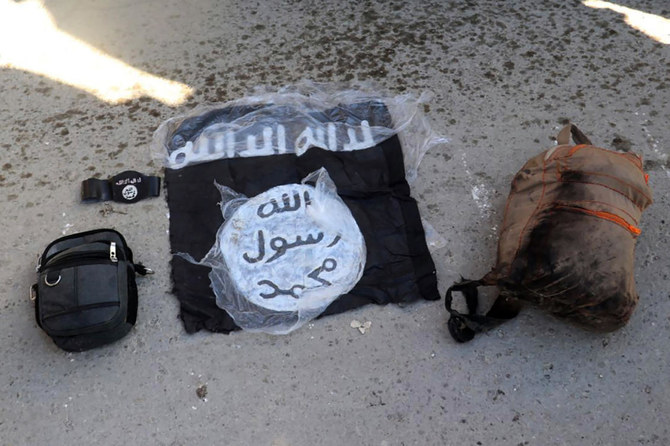JEDDAH: Daesh militants launched a new wave of attacks on a jail in northern Syria on Sunday as the death toll from four days of fighting rose to 136.
More than 100 terrorists first attacked the Kurdish-run Ghwayran jail in Hasakeh city on Thursday to free hundreds of Daesh members, including prominent leaders, in the most significant operation since its “caliphate” was defeated in Syria nearly three years ago
Amid intense fighting since then, the militants have freed prisoners and seized weapons stored at the jail, according to the Syrian Observatory for Human Rights, the monitoring group based in Britain.
“At least 84 Daesh members and 45 Kurdish fighters, including internal security forces, prison guards and counter-terrorism forces, have been killed,” the Observatory said. Seven civilians had also died in fighting in the city, the largest in northeastern Syria, it said.
The battles continued on Sunday as the Kurdish-led Syrian Democratic Forces, backed by US-led coalition airstrikes, closed in on Daesh targets inside and outside the jail.
Kurdish forces said the militants staged a new attack on the prison in an attempt to break the SDF security cordon and support prisoners who were still in control of some parts of the jail.
FASTFACT
The battles continued on Sunday as the Kurdish-led Syrian Democratic Forces, backed by US-led coalition airstrikes, closed in on Daesh targets inside and outside the jail.
The SDF said its forces had sealed off the area around the prison and “Daesh fighters located within the gates … can no longer escape.” The Observatory said the SDF had secured most of the area and much of the jail itself, apart from some cell blocks where militants had yet to surrender.
Hundreds of civilians fled the area. Daesh fighters were “entering homes and killing people,” said one man fleeing on foot carrying a child wrapped in a blanket. “It was a miracle we made it out. The situation is still very bad. After four days, violent clashes are still ongoing.”
Hamsha Sweidan, 80, who had been trapped in her home near the jail, said civilians were left without bread or water as the battle raged. “We have been dying of hunger and thirst,” she said as she crossed into SDF-held areas in Hasakeh city. “Now, we don’t know where to go.”
Ghwayran is the largest prison in Syria holding Daesh militants, housing up to 3,500, including over 600 under the age of 18. Daesh claimed their attack on Thursday had freed 800. The SDF said they had recaptured about 100 escaped prisoners, leaving hundreds still on the loose.
However, the anti-Daesh coalition insisted the prison attack would leave Daesh weaker because many militants involved in the fighting had been killed.
“The coalition is confident in its assessment that the recent Daesh escape attempt will not pose a significant threat,” it said. “While Daesh remains a threat, it is clearly no longer the force it once was.”




























